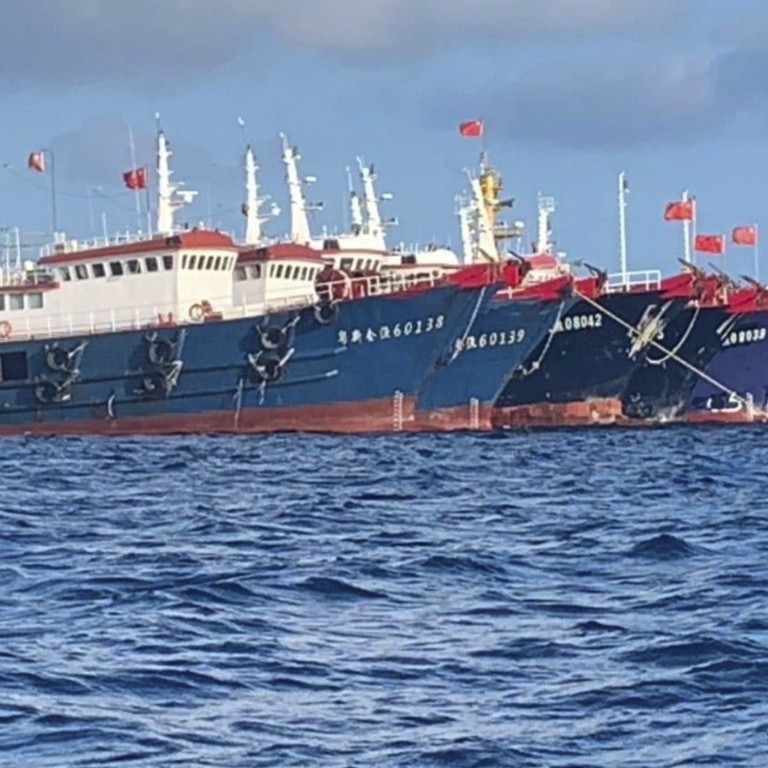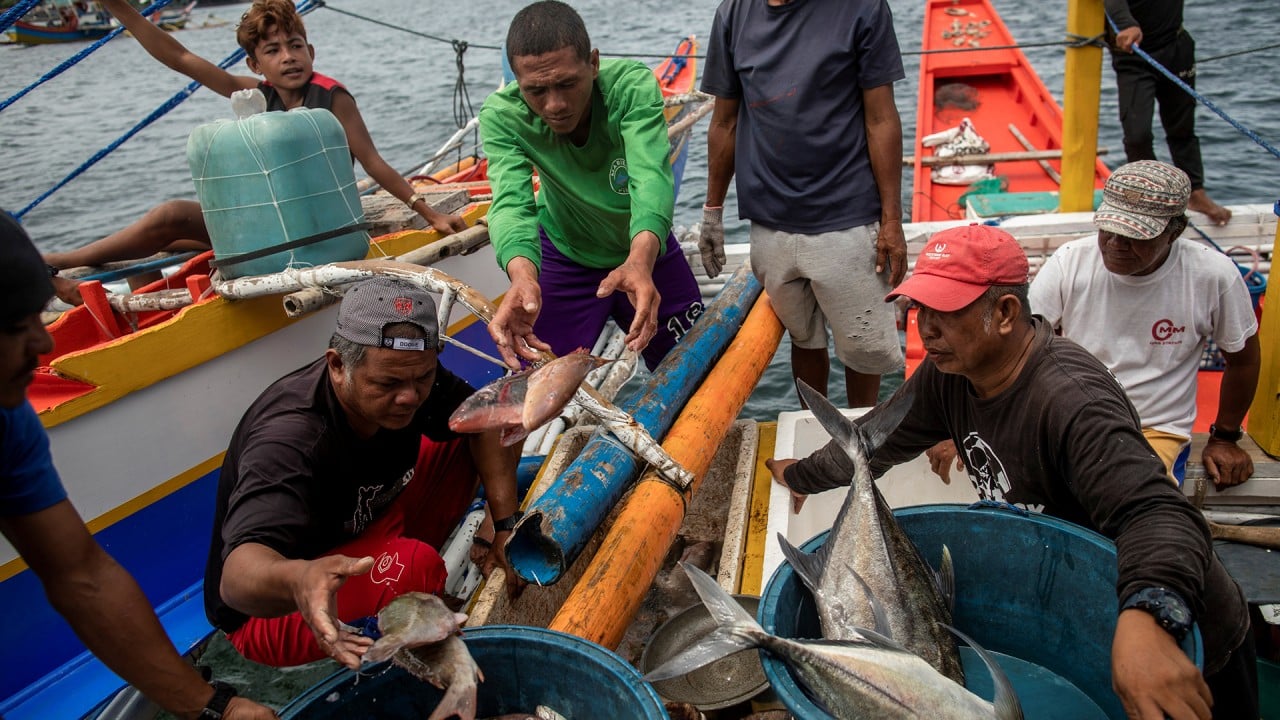
South China Sea: Beijing rejects claim raw sewage from Chinese fishing boats is harming reefs
- Foreign ministry spokesman Zhao Lijian calls it ‘serious defamation’ and says the report is not based on fact
- Human waste from anchored ships in Spratlys is doing damage that is visible from space, according to US firm Simularity
Chinese foreign ministry spokesman Zhao Lijian on Thursday said the report by US company Simularity, which analyses satellite imagery, was not based on fact.
“It is a serious defamation against China,” Zhao said. “China expresses its strong condemnation.”
Releasing the report on Monday, Simularity chief executive Liz Derr said the firm had satellite images showing Chinese fishing boats anchored in the Spratly Islands, pumping out tonnes of raw sewage. The firm has been monitoring the vessels for months in the disputed waters where China, the Philippines, Brunei, Vietnam, Malaysia and Taiwan have overlapping territorial claims.
She said the images showed a link between the constant presence of Chinese fishing vessels and degradation of the surrounding marine environment.
“The sewage from the anchored ships in the Spratlys is damaging the reefs and we can see this from space,” Derr told a forum hosted by Manila think tank the Stratbase ADR Institute.

02:16
Philippine fishermen claim continued Chinese harassment on South China Sea
The images compared in the report were taken on two dates: May 14, 2016, when there was little algal growth; and June 17 this year, when 236 Chinese fishing vessels were stationary in the waters of the Union Bank, Johnson South, Landsdowne, Ross and Collins reefs in the Spratlys.
Derr said sewage effluent encouraged microscopic algae known as phytoplankton to rapidly multiply. This enabled her firm to monitor the sewage output of the Chinese boats as the phytoplankton contained chlorophyll-A, a bacterial pigment that showed up as white patches in multispectral imaging.
South China Sea: US-Philippines treaty covers Chinese attack, Blinken says
But a day later the Philippine defence department said it was working to verify the claim.

On Thursday, Similarity chief Derr stood by their analysis of the satellite imagery.
“The way that they tied their ships together, the colours of the ships – like that bright orange – that’s really distinctive. Those are the same from … [photographs taken in] March and at what we see now,” Derr was quoted as saying by Philippine media outlet ABS-CBN News.
She said the Great Barrier Reef photo had been included in the report for illustrative purposes only, “because it’s nearly impossible to really grasp the situation when you’re looking at little grey dots on a satellite image”.
Tensions have been running high over China’s increasing assertiveness and military presence in the resource-rich South China Sea, where it has also been accused of causing environmental damage through its artificial island-building campaign.


